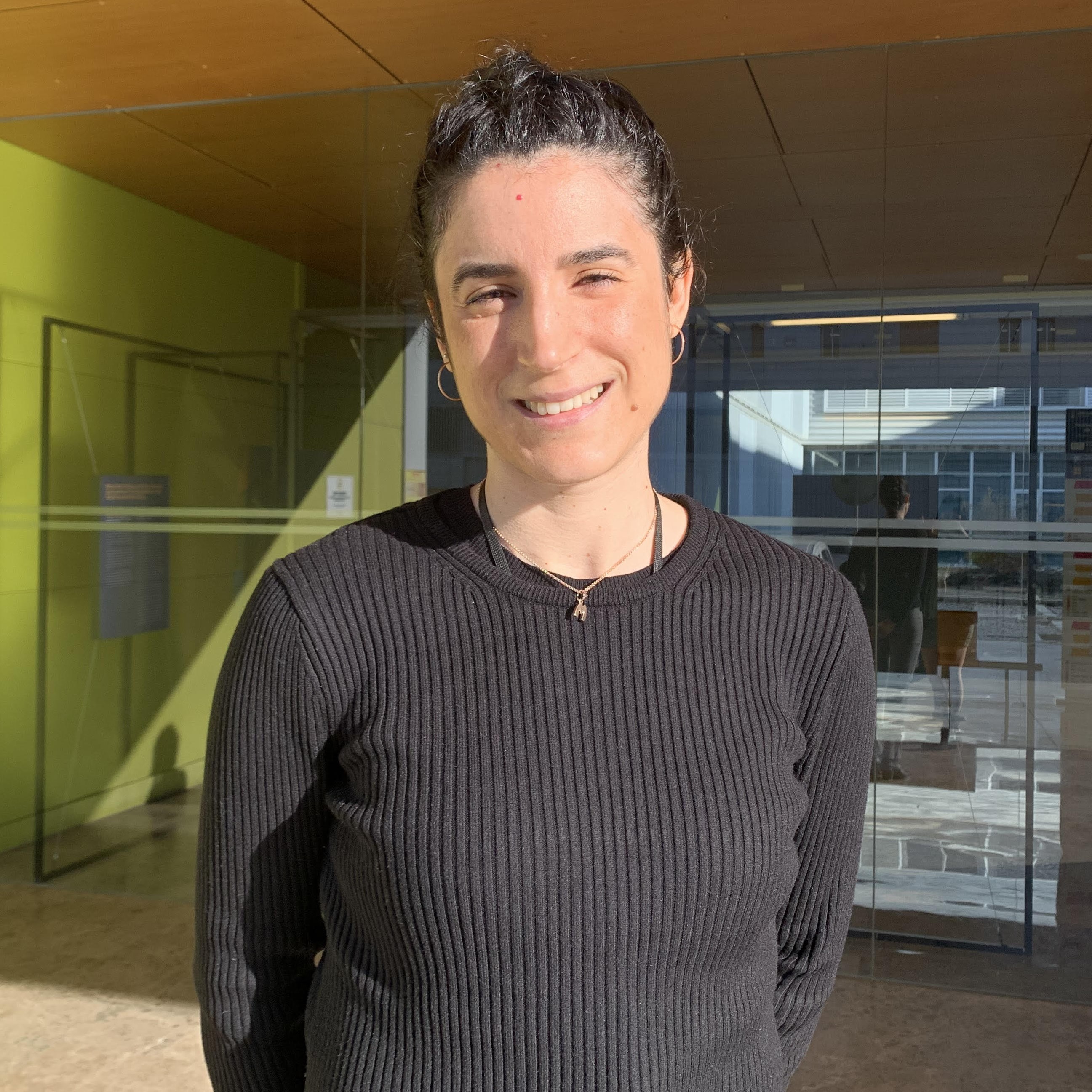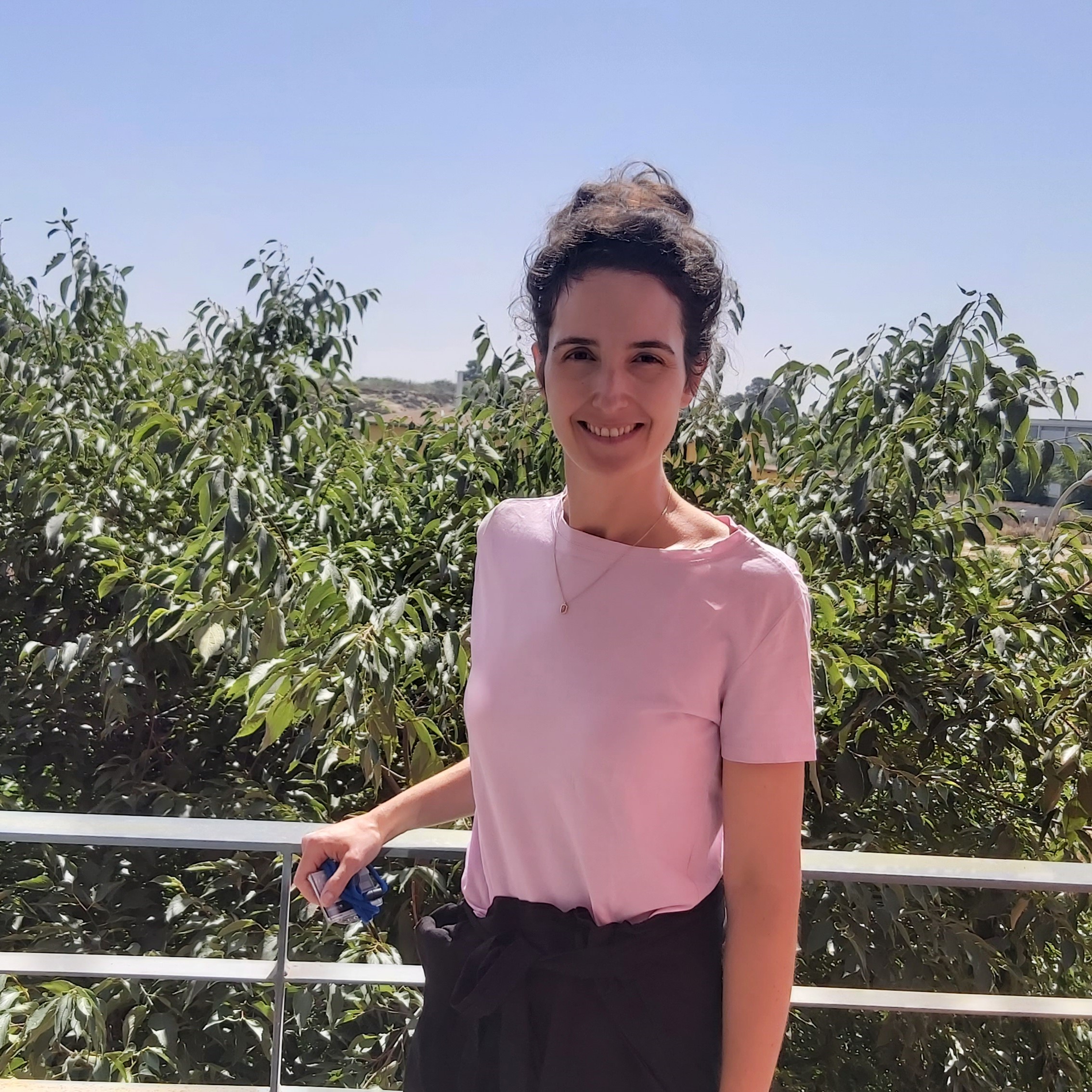
Why you decided to go into research
Both my mother, a professor in fluid mechanics, and my father, a doctor and researcher, have been inspirational figures for me. I grew up in an environment where research was part of everyday life, so it was a natural and attractive choice for me to follow in their footsteps after completing my studies.
Was it always clear to you that you wanted to be a researcher?
I think yes, since I was a child, I always wanted to dedicate myself to medical research, with an application in medicine. I remember having that thought from a very young age, saying ‘I want to cure cancer’ when I was 6 years old. Although I later opted for a technical background in telecommunications engineering, I later specialised in biomedical engineering.
How long have you been associated with the I3A and what would you highlight about the Institute?
I have been linked to the I3A, specifically to the BSICoS group, since I started in 2011 as a scholarship holder with my final degree project. I then continued with my master's thesis in 2013 and finally completed my PhD in 2017. I spent the next five years in London and returned in 2022. Formally, I am a permanent member of the Institute from 2023.
I would highlight the complementary services offered by the Institute, such as technical, administrative, European projects and communication services. I think these services are very valuable, as we can delegate these tasks to specialised people, and they allow us to work more efficiently and focus on research, which is our strength. I believe that it is the work of these services that makes it possible to position the Institute as a reference centre.
In your research group, what are your main lines or areas of work?
In the BSICoS group, we focus on understanding the cardiovascular and autonomic nervous system through the analysis of biomedical signals and data. This data can include electrocardiograms, encephalograms, respiration measurements, pulse oximetry and other types of body signals. Our goal is to use this information to detect and predict cardiovascular, autonomic nervous system and even cognitive problems.
In my particular case, in the first stage of my career, which was during my thesis, I focused on analysing electrocardiogram signals to predict cardiovascular risk. In the second part, I explored genetics and bioinformatics to identify genes that could modulate the electrocardiogram, with the purpose of using them as targets for the development of drugs and treatments.
Any ongoing projects you would like to highlight
I would highlight my consolidation project, which I got five months ago. The main objective is to optimise the prediction of sudden cardiac death, an event that occurs with low prevalence in the general population but even so the absolute numbers are quite high. It is still unknown why it happens, and by its very definition it is sudden and difficult to predict.
In this project, the first phase involves using artificial intelligence to extract as much information as possible from the electrocardiograms of about 100,000 volunteers. This information and the predictions generated by the AI will then be used to apply genetic statistical models. The aim is to identify genes that may modulate predisposition to sudden cardiac death and to detect rare genetic variants that are more present in people who may experience this event. This will allow us to prioritise these variants and genes for the development of specific pharmacological treatments.
How do you see the future of your research area, and are there any trends or challenges that you find particularly interesting or important?
One challenge I see is precisely related to the project I have mentioned. Currently, this research requires a significant amount of data, both for the artificial intelligence models and for the genetic analyses. However, there is an inequality in the availability of data, with most of it coming from white Caucasians. This does not reflect the incidence of sudden death in other races or ethnicities. Therefore, the current challenge is to collect data from different races and ethnicities, as well as from women only. Preventive therapies for sudden cardiac death are mainly based on studies involving white men, but apply to diverse groups that may have different risk mechanisms. Therefore, the challenge is to develop personalised therapies that address the specific needs of each group, whether male or female, and also consider ethnic or racial differences.
What do you enjoy most about your profession and what do you enjoy least?
Least of all, the instability experienced from the pre-doctoral period until stabilisation is reached, which unfortunately usually occurs in the late 30s, if you are lucky. It is a very vulnerable time on a personal level, as it coincides with the time when we seek stability in our personal lives, such as starting a family, choosing where to live or buying a house. It is also a turbulent time professionally, as you are never sure where you will work or whether you will get funding beyond a few years, which has an impact on the quality of your work.
What would you say to anyone thinking of going into research?
I would tell him to focus on the good aspects of this profession, because, while there are negative aspects, there are also many positive ones. Research offers a great deal of freedom, both intellectually and in terms of time and conditions. It is important to recognise and appreciate these aspects, as there is often too much focus on criticism and overlooking how rewarding it can be. If you find this fulfilling, give it your all, as you will be able to enjoy your profession even when there are bumps in the road, and this is something important that other professions do not offer. On the other hand, if they are not sure, that's fine too. The important thing is to enjoy the journey, and at any time you can take a different direction and follow what makes you happy. Research is not an irreversible path.
CLOSE UP…
What did you study: Telecommunications Engineering
A dream to fulfil: That the research I am involved in really makes a significant step forward in curing and treating sudden cardiac death, impacting both men and women, as well as people of different ethnicities. It would be gratifying to see my research have a real impact on society.
What do you do in your spare time: I really enjoy playing sports, being outdoors and spending time with my friends and family.
A book: I have many favourites, but I would highlight Ana Karenina, The Count of Monte Cristo and God's Crooked Lines.
A film: One Flew Over The Cuckoo's Nest
A series: Better Call Saul
Favourite band or singer: I also have many favourites, but I would name Queen, Sia and Enrique Bunbury.
A trip: The Camino de Santiago
How would you define yourself: I am a person with a strong drive and curiosity to discover new things, who is always on the move, I have a lot of energy and perseverance.
